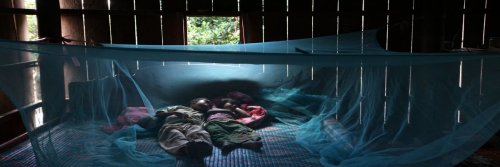When it comes to malarial medication, many people find that there is very little information about this course of treatment and the possible side-effects. Moreover, few realise that you are still at risk of contracting malaria. The medication provides some additional protection but it is far from being a vaccination – there is no current vaccination available.
Given it’s not a vaccination some may question the high costs of the medication. It is well priced and does add to the overall costs of your trip. It is not uncommon to pay around GBP £100 (USD $150) for the more common courses of medication.
There is also the added risk of complications that can occur with the medication. It should be considered a serious course of medication, with even the most healthy at times becoming quite ill as a side effect.
Even after taking the course of medication there are may that still contract the disease. Each year, thousands of individuals return to their home country unaware of the parasites that are within their bloodstream going on to experience the unpleasantness of full fledged malaria well after returning home.
Malaria is known to be the one of the biggest causes of death globally. In 2012 an estimated 630,000 people died due to the disease. Roughly 90% of these were in sub Saharan Africa and predominantly local, given the constant exposure they have.
With travel to exotic location being far more accessible health should always be a personal priority, before, during and after. As such the risks associated with contracting Malaria are very real and should not be underestimated. Whilst taking Malaria medication is not a vaccination there are strong arguments to doing everything reasonable to protect oneself.
Nonetheless there is a growing sentiment toward avoiding malaria medications. As we are not qualified we will not suggest one or the other. It is always best to consult with a knowledgeable physician, particularly since malaria medications may vary depending on the country you are travelling to. Prevention is always better than needing a cure (also none for malaria) so here are some tips if you are travelling to a destination where you may become at risk of malaria.
7 Tips To Minimising The Risk Of Malaria
1. | Seek proper medical advice for a qualified doctor that understands the disease. Do not only rely on your local doctor for advice. Then decide whether you take the medication or not. | |
2. | If able purchase some flying insect spray at your destination - you’re unlikely to be able take it on the plane, and avoid having pressurised cans in your check-in luggage, they have a habit of exploding. Alternatively ask your hotel for mosquito coils or insect spray, most should be able to accommodate. | |
3. | If your hotel bedroom has a mosquito net - use it. It is not a fashion statement. | |
4. | You can treat your clothing with ‘permethrin’ which is an insecticide, and does not wash out immediately – it can be purchased at good sporting goods stores. | |
5. | Take a good quality (tropical strength) insect repellent – and use it. Ones with a high DEET content usually work best. | |
6. | In some countries you will also be able to buy mosquito patches, these are small patches you can place on your clothes, best around the back of your next or areas which may be exposed. Usually these should not be put on your skin. These are also useful to place on or around your sleeping area. | |
7. | Wear long sleeves and pants, particularly at dawn and dusk and at night, if viable do it all day. Sports and adventure clothing companies now sell very good clothing, which breathes, allowing you to stay cool and provide protection at the same time. Some even sell pre-treated clothing for the tropics. Don’t forget your ankles if and when you are sitting outside. |















